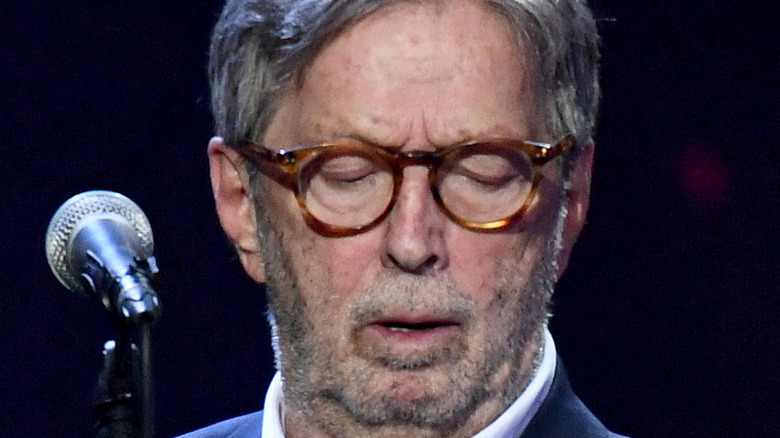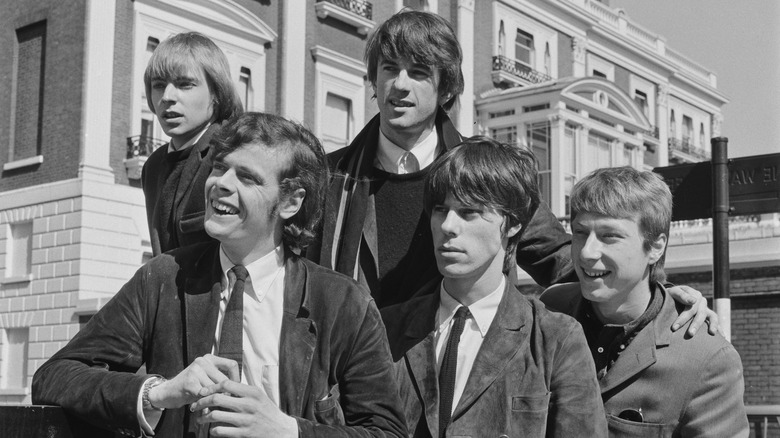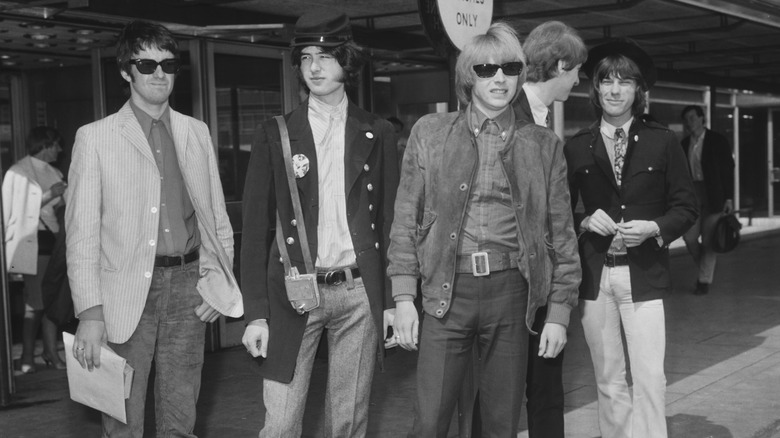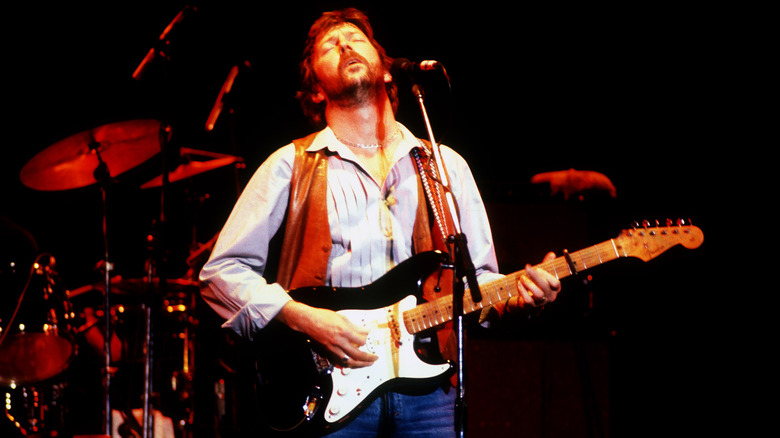Eric Clapton's Former Bandmates Didn't React How You Would Expect When He Quit
Big talents are accompanied by big personalities. We herald artists for their ability to fearlessly exhibit themselves through their work, turning the conglomeration of all their (sometimes chaotic) emotions into something truly remarkable. However, a personality that big is bound to bubble over the brim in ways that aren't so pretty to behold. Those who spend a lot of time with artists in their personal lives get an up-close and often unsavory view of this vivid, inescapable reality.
You'd think that anyone would lunge at the opportunity to work with Eric Clapton. The British-born musician has been hailed as a celestial god of electric guitar for over half a century, but some claim that working with him one-on-one is hardly a pleasant experience. When Clapton parted ways with The Yardbirds in 1965, his bandmates didn't go out of their way to give him a commemorative farewell. According to Far Out, they were admittedly relieved after he left them behind to pursue his own project.
The Yardbirds were happy when Eric Clapton left
In 1963, at the ripe old age of 18, Eric Clapton teamed up with The Yardbirds. The band was well on their way to the top of the rock 'n' roll food chain in the British music scene, usurping the Rolling Stones at London's Crawdaddy Club for the honorary title of house band, as History notes. Despite his exceptional contribution to the project, the other group members found some of the young guitarist's behaviors/remarks unsavory. "Eric had these R&B mod songs he wanted us to do. Him leaving was a relief. Eric would be sitting in the van not talking to anyone. You'd think he's so moody, he's such a pain, we're fed up with this," drummer Jim McCarty once shared (per Far Out).
Clapton was a strict disciple of the blues, and once he realized that The Yardbirds were slightly more geared toward a pop trajectory, the schism forming between him and his band became too apparent to ignore, so he resolved to go his own way. As you'd probably expect, none of his compatriots objected.
Jeff Beck then Jimmy Page joined after Eric Clapton left
If not for the sake of both musical and interpersonal harmony, Eric Clapton's departure from The Yardbirds turned out to be a good thing in more than one way. After announcing his voluntary dismissal, Clapton reached out to his dear friend and fellow guitar prodigy Jimmy Page to be his replacement. However, Page turned the offer down, though he caved later on and joined up with The Yardbirds in 1966, as History writes.
After the would-be Zeppelin guitarist declined Clapton's request, the group commissioned Jeff Beck to fill the spot. Beck, like Jimmy Page and Eric Clapton, would go on to become another one of rock 'n' roll history's most influential and venerated talents. The Yardbirds officially dissolved in 1968, but their short life span was something of a catalyst for three of the most revered musicians of the 20th century (via History). Even Aerosmith frontman Steven Tyler cited The Yardbirds as an early influence by telling Rolling Stone, "We also thought about our roots, about paying homage to the stuff we loved, early Yardbirds and all."
Eric Clapton was glad to leave The Yardbirds
As his time within the group came to a close, it was blatantly apparent to his band members and any other up-close conscious observer that Eric Clapton was not a proper fit for The Yardbirds. Despite being a "very dedicated player" and being "always very enthusiastic," according to Jim McCarty, the time had come to part ways with him. However, The remaining Yardbirds weren't the only ones who were glad to see the guitarist go. According to Ultimate Classic Rock, Eric Clapton himself had some significant hangups from the start that prompted some not so favorable feelings toward the project and his bandmates.
"I was fooled into joining the group, attracted by the pop thing, the big money and traveling around and little chicks," Clapton revealed later on. "It wasn't until after a year-and-a-half that I started to take music as a serious thing." Despite the obvious appeal of the rockstar lifestyle, the young and ambitious musician had higher aspirations that — in his mind — transcended what his current project had to offer him then and there (via Ultimate Classic Rock). Whether it was a fool's errand or something else, Clapton's initial involvement in The Yardbirds did lead to other things that suited his preferences. If anything, it distinguished what he wanted from what he clearly didn't want.



